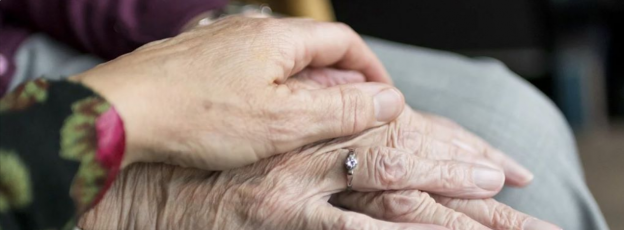Summary
Perhaps you have heard the saying that we live in a “dog eat dog world.” Everybody looks, in general, out for themselves. They seek to succeed at all costs, even the cost of others. The poor and needy are forgotten and walked over for the success of others.
But God does not love this dog eat dog world. It is the result of our sinfulness. Psalm 41 describes God’s attitude. God loves the poor, and he loves the righteous who love the poor. This psalm, the last in “Book One” of the Psalms, encourages us to care for the poor because it reflects God’s love for the poor, and to take heart that God will see it even if we do not.
Our passage explained
v1-10
The first three verses of Psalm 41 describe God’s love of those who care for the poor. Those who consider the poor by helping or empathising with them are “blessed” and will enjoy his protection as “in the day of trouble the LORD delivers him” (v.1). God protects them and causes them to prosper (v.2), and brings physical health and recovery (v.3).
In verses four to ten, King David describes a situation where he was not cared for by others. He had sinned, but confessed his sins to God and asked God to “be gracious to me; heal me” (v.4). Whatever has happened has laid him low, as if he himself has become a poor man.
Unlike the righteous, his enemies were not interested in comforting him. They instead maliciously said “When will he die, and his name perish?” (v.5). When visitors come, they do not offer true empathy and comfort, but empty words which are later joined by evil lies to others about him (v.6).
His enemies gather together to “whisper together about me; they imagine the worst for me” (v.7). They say to anyone who will listen “a deadly thing is poured out on him; he will not rise again from where he lies” (v.8). They hope that the trouble which has come on David will be fatal for him. Rather than offer empathy and comfort like the righteous do to the poor and lowly, his enemies wish his death. They should not expect God’s blessing on them.
The neglect David suffered even extended to his closest friends. A close friend “in whom I trusted, who ate my bread, has lifted his heel against me” (v.9). David was betrayed by a very close friend, who he should have been able to rely on in his great hour of need. Rejected by all, even his closest friends, David turns once again to God for help, asking “but you, O Lord, be gracious to me, and raise me up, that I may repay them!” (v.10).
v11-13
In verses eleven and twelve, David expresses his confidence that God will bless him, a righteous man who cares for the poor. Having prayed for God’s help to raise him up (v.10, cf. v.3), he states he will know God’s pleasure in him because God’s raising of him will stop his enemies from shouting in triumph over him (v.11). Instead, as one who helps the poor (his “integrity”), he is upheld by God and enjoys his presence forever (v.12).
The psalm concludes with an added doxology, which concludes the first book (section) of the Psalms. It praises God, saying “Blessed be the LORD, the God of Israel, from everlasting to everlasting! Amen and Amen” (v.13). Never should the praises of the everlasting God end; the God who cares for the righteous and the poor.
Our passage applied
As we think about this psalm, the first important point to see is that David’s betrayal at the hands of a closest friend (v.9) prefigured Jesus’ betrayal by Judas, one of his twelve disciples (and closest companions). Jesus applies verse this to Judas in John’s Gospel (John 13:18), showing himself to be the ultimate example of the righteous man betrayed by his closest friend.
Jesus himself showed God’s love for the poor and needy in his earthly ministry. His many acts of feeding and healing showed God’s love and concern for us all. Christ’s resurrection from the dead demonstrates he is the ultimate righteous man, vindicated and restored by God for all the world to see. As the only truly righteous man, God credits Jesus’ righteousness to us in exchange for our unrighteousness (Romans 5; 2 Corinthians 5:21).
This psalm then does not encourage us to look out for the poor and needy as a pay-off for God helping us, but instead encourages us to care for the poor because of God’s care for us through Jesus. There is no dog eat dog in God’s kingdom. As we care for the poor and needy, whether in daily life or through the special care we must show the vulnerable in these next few months, we reflect God’s love to them and the world. We are paying forward what we have received freely from God, a form of praise to the everlasting God.
Resources
Questions? Please contact us. Inspired? Come and worship with us on Sundays.

